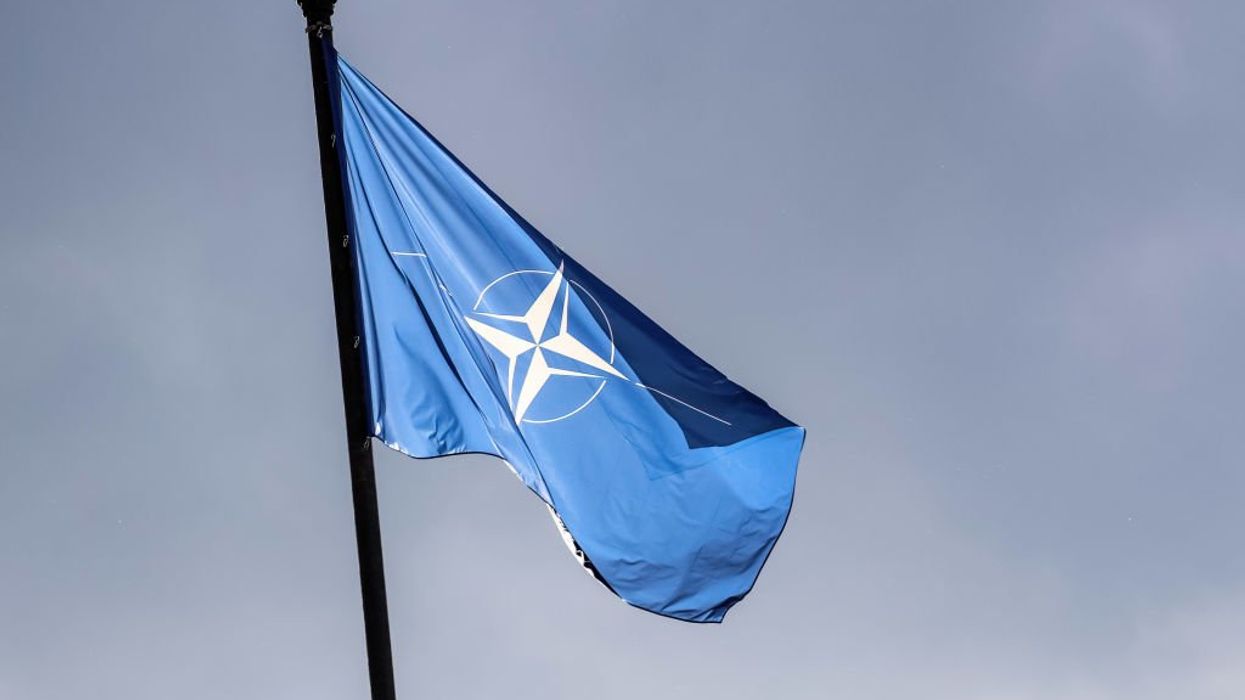
Photo by Dominika Zarzycka/SOPA Images/LightRocket via Getty Images

The alliance is set to discuss the future of AI in wartime amid the ongoing conflict in Ukraine.
The use of artificial intelligence represents the next generation of warfare, and NATO allies have reportedly made it a top priority to leverage the technology to boost the alliance's defense, according to Fox News Digital.
A summit marking the 75th anniversary of the alliance is set to take place in Washington, D.C. next week. One of the focuses of the summit will be to discuss safeguarding NATO amid geopolitical tensions around the world. The member nations are also expected to be joined by Ukraine.
Since the start of the Ukrainian conflict, there have been global fissures created between Western nations and their political opponents. One way in which NATO is considering bolstering its defense systems is through AI, according to the report.
'Just as there are reasons for concern in countering Chinese and Russian kinetic weapons — such as hypersonic maneuvering cruise missiles — the U.S. has the ability to build effective offensive and defensive systems.'
Blaze News previously reported that AI development in the U.S. had fallen behind political opponents such as China. Earlier this month, data analytics firm Govini indicated that the U.S. is still behind China in the AI race. Consequently, the U.S. would have a hard time winning a war against the People's Liberation Army if a serious conflict were to erupt between the two world superpowers.
Govini investigates the performance of the federal government, specifically focusing on the 15 most important national security technologies through the lens of acquisition, adversarial capital, procurement, supply chain, foreign influence, and science and technology.
Govini's report suggested that the U.S. has continued to under-invest in valuable AI capabilities while also slowing down in the research and development stages. Nine of the 12 areas assessed in the report noted that over 65% of the government's funding was still lingering in the research and development stage in 2023. As a result, many of these potentially valuable technologies are still not production-ready.
Govini CEO Tara Murphy Dougherty said: "Despite the fact that artificial intelligence is an incredibly, highly visible, arguably the most transformational technology that matters in the critical tech competition, not just for the United States, but around the world, the Department of Defense is still primarily attacking this as a research and development effort."
“While there is more to do in R&D for artificial intelligence, it is well past time for DoD to stop treating AI like it is just a science project,” she continued.
Despite these setbacks, it appears that the ongoing conflict in Ukraine has increased the need for exceptional technology in the realm of drones in kinetic warfare. Consequently, this has ignited an AI race to become more offensively and defensively equipped.
Retired Rear Adm. Mark Montgomery, a senior fellow at the Foundation for Defense of Democracies, said that "[t]here should be concern about countering Chinese and Russian AI capabilities in wartime, but concerns should not be mistaken for despair."
"Just as there are reasons for concern in countering Chinese and Russian kinetic weapons — such as hypersonic maneuvering cruise missiles — the U.S. has the ability to build effective offensive and defensive systems to deter and, if necessary, defeat adversary actions," he continued.
Fox News Digital reported that earlier this year, NATO more than doubled its tech accelerator sites under a program that has come to be known as the Defense Innovation Accelerator for the North Atlantic. DIANA is said to work with both public and private companies to come up with "deep technologies" to help shore up the alliance's defense systems.
The report added that the program will install testing sites in 28 of the 32 NATO nations. The goal is to support and bolster innovation in the fields of AI, 5G, cyber, hypersonic, and autonomous systems.
Additionally, the alliance will be looking to establish guardrails when it comes to AI during wartime, according to the report.
"There will be doctrinal discussions at NATO on making sure that we don't have ‘SKYNET’ take over and start engaging in kinetic action without humans making decisions," Marshall Billingslea, former NATO Assistant Secretary General for Defense Investment, said.
"As drones become increasingly sophisticated, while remaining inexpensive, and as people introduce artificial intelligence into drones for attack, there is a need for a comparable level of AI that has to get incorporated into countering UAS [unmanned aircraft systems], as well as theater missile defense capabilities," he concluded.
According to the State Department's website, the 75th anniversary of NATO is set to feature the "strength and unity of our transatlantic bond, advance the implementation of the most robust deterrence and defense plans since the end of the Cold War, and showcase NATO’s vital role in defending our future for generations to come."
Like Blaze News? Bypass the censors, sign up for our newsletters, and get stories like this direct to your inbox. Sign up here!